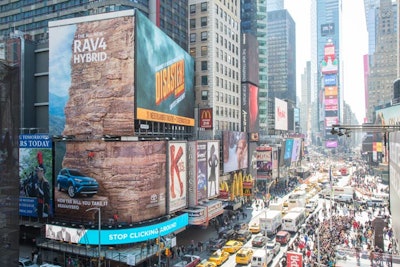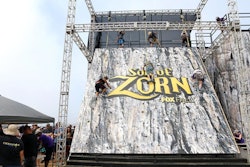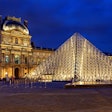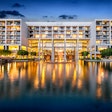
Proposed regulations from New York City's Street Activity Permit Office would change the process of planning public events in locations like Times Square, leaving many large-scale event producers angry about the potential effect on their businesses.
The proposal includes changes to the process of obtaining event permits for public plazas and lists fees for the use of spaces. The most significant changes relate to application lead-time. Currently New York City requires permit applications to be submitted 10 days in advance for small events and 30 days in advance for large events. Under the proposed rules, the lead-time would change to 30 days and 60 days, respectively. Local community boards would also get to vote on whether to approve event permits.
"The proposed plaza event rules are designed to maximize opportunities for the public to hold events in plazas while also ensuring that the City has advance notice of all plaza events so that events may happen in an orderly fashion while also ensuring that the plazas remain available for everyday use and enjoyment by the public," according to a notice from the permit office, known as S.A.P.O., which is part of the Mayor’s Office of Citywide Events Coordination and Management.
Several New York-based event producers contacted for comment were reluctant to speak on the record for fear of damaging their relationships with city officials. Speaking anonymously, one industry insider explained that of the more than 200 projects his company managed in 2015, only 20 percent were initiated more than 60 days in advance.
"It's going to be nearly impossible to do what we've done in the past," he says. "Nationally, the events business is a $393 billion industry. New York is a leader in the business, and we fear that the economic stimulation could go away."
The new regulations come at a time when brands increasingly gravitate toward eye-catching public events and stunts that generate word-of-mouth buzz and social media traction. "We did more projects that require street permits last year than ever before," says another planner. "It seems to be a growing trend that companies are coming to New York and putting their ad dollars into experiential events."
If permits for attention-grabbing events become too restrictive in New York City, producers wonder if brands will opt for other cities instead.
"With these regulations, New York will be the strictest city in the country in terms of obtaining permits," says the source. From security guards to carpenters to caterers, "there are a lot of people who rely on this industry to survive."
The proposal could also stunt overall development in New York City. Says another source, "Clients are always looking for the newest venue. We go in and make a bad space up to code again." Public spaces like Bryant Park and Randall's Island were one-time eyesores, but bringing events to these sites helped them both evolve into thriving areas for the public to enjoy year-round.
Not all planners oppose the new restrictions.
"To be honest, the difference between 10 days and 30 days is not that much when you are looking at pre-production time," says Jennifer Claire Scott, senior producer at Empire Force Events/Access New York Metro. "As the experts, the onus is on planners to know where to find privately run spaces that can accommodate big events if the application deadline for public plazas has passed."
A public hearing is scheduled for August 8 to give the industry and the community a chance to voice their concerns. Should the rules go into effect, the fall events schedule could look very different than in past years. Says one source, "The whole industry will lose a season, which would be detrimental to small companies in New York."
Some event professionals see the shift as reflecting new political priorities in the mayor’s office. "The Bloomberg administration understood that events are good for the economy. They help bring revenue, jobs, and a way to get people involved in the community," says the source. "Mayor [Bill] de Blasio seems to oppose events, and the S.A.P.O. regulations are becoming more and more restrictive."
As the new rules are not yet finalized, officials from the permit office declined to comment.



















